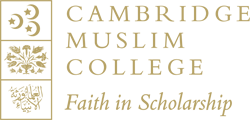
Talal Al-Azem
Academic Director
taa@cambridgemuslimcollege.ac.uk
Academic Bio
Dr Talal Al-Azem is the Academic Director of the Cambridge Muslim College. His research focuses on social and intellectual history of the Muslim world, with particular attention to institutions of law and learning in the medieval and early modern Near East. His first book, Rule-Formulation and Binding Precedent in the Madhhab-Law Tradition: Ibn Quṭlūbughā’s Commentary on the Compendium of Quduri (Leiden: Brill, 2016) argues for a single jurisprudential tradition underpinning the four post-classical Sunni schools of law, and demonstrates how this tradition facilitated both continuity and legal change while serving as the basis of a pluralistic judicial system in Mamluk Egypt. His current book project is a critical edition of a biographical dictionary of late medieval Damascus, through which he studies both the socio-urban and educational history of the city on the eve of the Ottoman conquest.
Dr Al-Azem received his MSt (distinction) and DPhil from the University of Oxford, Faculty of Oriental Studies in 2011. He obtained his BA in history and Near Eastern studies from the University of Michigan, Ann Arbor. Before joining the Oxford Centre for Islamic Studies, he was lecturer in Islamic history at the Faculty of Oriental Studies, and was awarded a Junior Research Fellowship at Pembroke College, Oxford. From 2014-15, he was a research officer on the ERC-funded IMPAcT (Islamic philosophy and theology) project.
Education
- DPhil in Oriental Studies, Oxford, 2011
- MSt in Oriental Studies, Oxford, 2007
- Islamic Disciplines, Damascus, Aleppo, Istanbul, 1997–2006
- BA in History and Near Eastern Studies, University of Michigan, 1997
Research Interests
- Social and intellectual history
- Islamic law and legal institutions
- Muslim education and institutions
- Formations of the moral self
Featured Lecture
Select Publications
‘The Practice of Engagement: Research and Teaching as Conversations with an Other’s Tradition’ (with with Johan Rasanayagam) in Dialogues: Anthropology and Theology, special issue of The Journal of the Royal Anthropological Institute, edited by Adam Reed and Naomi Haynes, 28/1 (2022): 297– 347. Access here
‘Conscience and Action in the Madhhab-Law Tradition’, in Emily Corran and Morgan Clarke (eds.), Rules, Ethics and Conscience: Perspectives from Anthropology and History (Manchester: Manchester University Press, 2021). Access here
Rule Formulation and Binding Precedent in the Madhhab-Law Tradition: Ibn Quṭlūbughā’s Commentary on the Compendium of Qudūrī (Leiden: Brill, 2016). Access here
‘The Transmission of Adab: Educational Ideals and Their Institutional Manifestations,’ in Philosophies of Islamic Education: Historical Perspectives and Emerging Discourses, edited by Mujadad Zaman and Nadeem A. Memon, 112–26 (New York and London: Routledge, 2016). Access here
‘A Mamluk Handbook for Judges and the Doctrine of Legal Consequences (al-mūjab)’, Bulletin d’Études Orientales 63 (2015): 205–226. Access here
Recent & Regularly Taught Courses
- Islamic Legal Theory – BA (Hons) Islamic Studies
- Spiritual Discipline & Ethics – BA (Hons) Islamic Studies

